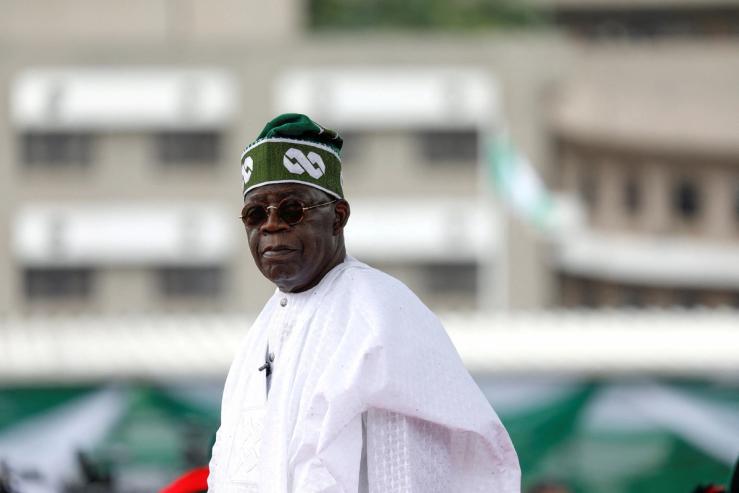The News
West African leaders retained the option of using military force as a last resort to restore constitutional order in Niger by ordering the activation of the regional bloc’s standby force.
The decision was contained in a communique at the end of a meeting of heads of states of the Economic Community of West African States (Ecowas) on Thursday in Nigeria’s capital, Abuja.
The bloc said it would seek to exhaust all negotiation options to restore order in the wake of the July 26 coup. However, it said all options including the use of force remained on the table.
Ecowas, in its communique, said it would instruct its defense chiefs to “activate the Ecowas standby force with all its elements immediately” and order the force’s deployment. The communique did not provide details on the size of the force or where they would be deployed.
Thursday’s meeting started hours after Niger’s coup leaders announced the formation of a cabinet of 21 ministers, to be headed by Ali Mahamane Lamine Zeine, a 58-year-old former finance minister who was made prime minister on Monday.
At a previous summit on July 30, Ecowas threatened the use of force if Mohamed Bazoum was not restored to the Nigerien presidency by Aug. 6. “Regrettably the seven-day ultimatum we issued during the first summit has not yielded the desired outcome,” said Nigeria’s president Bola Tinubu, before today’s meeting went into a closed-doors session that produced the communique.
Tinubu had emphasized the need to “prioritize diplomatic negotiation and dialogue as the bedrock of our approach” in remarks before the deliberations began.
In this article:
Know More
The Niger coup has grabbed international attention in ways that six other coups in West and Central Africa since 2020 have not. Under Bazoum, Niger had been a dependable ally of France and the United States who have 2,500 troops stationed at military bases there in a long-running fight against terrorists in the Sahel region.
Ecowas has imposed a raft of economic sanctions on Niger, the U.S. has said it will cut aid, and Nigeria has stopped supplying electricity. Niger has closed its airspace in response, looking to Burkina Faso and Mali as its sole allies in the subregion.
A high-ranking U.S. State Department diplomat was declined a meeting with General Abdourahamane Tchiani earlier this week. A joint Ecowas delegation with the Africa Union and the UN to Niamey on Aug. 8 was also told they would not be received.
Alexander’s view
The Ecowas decision to prepare for forceful action seems designed to show it is maintaining the tough stance it took in the immediate aftermath of the coup. The bloc, having been ignored, needed to be tough enough to avoid losing credibility without inflaming the situation.
Despite retaining force as an option, the reality is that Tinubu, the bloc’s chairman who appears to have driven the bloc’s approach, faces stiff opposition to such plans from various quarters in Nigeria. An awareness of that opposition seems to have influenced the tone of his opening remarks at the Ecowas summit where he called for a “comprehensive assessment” of efforts taken so far to produce “a new sustainable path towards lasting peace, stability, and prosperity in Niger.”
The Nigerian leader has taken a rapid approach to policy making since taking office nine weeks ago, scrapping fuel subsidies and multiple exchange rates. Those actions, though premised on expert consensus that they are good in the long-term, have shocked households with rising food prices and significant hardship in the country.
Conflict with Niger, which will be led by a mostly Nigerian army, threatens to amplify these anxieties, especially for communities in Nigeria’s northern states that share a 1,000 mile border with Niger. Shared religious and cultural ties between those Nigerians and Nigeriens around the border means a conflict would be between brothers, as Christopher Gwabin Musa, Nigeria’s chief of defense staff, described it.
“Nigeria has a serious humanitarian crisis, with millions of internally displaced persons and hundreds of thousands of refugees including in Niger,” a group of northern Nigerians, including a respected former electoral commission chair Attahiru Jega, warned in a letter to Tinubu dated August 9. The group cautioned that “the Boko Haram insurgency, farmer-herder conflicts, banditry and mass kidnapping might all be exacerbated as the flow of arms, violent extremism and armed banditry spread and deepen in our sub-region.”
Nigeria’s Senate — the upper chamber of parliament — has already formally refused Tinubu’s request to authorize military action. Details of a meeting with Nigerian Muslim leaders yesterday are unknown but it seems to have been part of a campaign to get the president to slow his roll. Tinubu’s spokesperson Ajuri Ngegale did not comment on questions around what was discussed.
The activation of a standby force means military intervention remains on the table, as do the problems any such move would create for Nigeria’s president.
The View From Abuja
Waziri Adio, founder of Abuja-based think tank Agora Policy, said: “I see a dual game going on: Tinubu showing Nigerians (especially northerners) that he’s in favour of dialogue; Ecowas showing that military option not yet off the table. Tinubu issuing a statement before the meeting is clearly a message for Nigerians. But we are also bound by the decision of Ecowas.”
Notable
- Niger could be Tinubu’s version of George Bush’s misguided actions in Iraq and Afghanistan, warned a member of the Nigerian president’s ruling party of the military threat. “Most of what he’s doing is on the hoof rather than a carefully considered assessment of the situation.”


